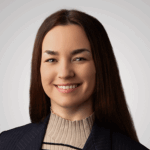The future viability of the university is at stake, emphasized Rector Prof. Wolfram Ressel in his welcome speech at the 6th Diversity Day at the University of Stuttgart, which focused on "Social Sustainability." The participation of three university management members in Diversity Day alongside him highlights the growing significance of this topic.
Diversity measures that have a long-term impact
Vice Rector Prof. Silke Wieprecht reported on the progress of ideas from last year's Diversity Day, which are already being pursued. "All course descriptions are currently being reviewed for their sensitivity to diversity topics", she explained. Additionally, a "map" will be created, using graphics to detail contact information for various needs. Alongside other long-term measures, the University of Stuttgart's appearance at this year's Christopher Street Day on July 27 under the motto “Living Diversity” is likely to be a highlight.
In an interview with diversity expert Dr. Isabell Lisberg-Haag, Anna Steiger, Chancellor at the University of Stuttgart, discussed observing the transition from women's advancement to broader diversity initiatives throughout her career. She also emphasized the crucial role of generational management in fostering diversity.
Quality education, tackling inequality, promoting gender equality
The social aspects of sustainability are reflected in the 17 Sustainable Development Goals set by the United Nations. Half of the goals formulated there are of a social nature, including high-quality education, promoting gender equality and reducing inequality. All discussion tables were therefore dedicated to social aspects of sustainability. The World Café method provided a platform for uniting different perspectives. Diversity impacts the entire university community, involving individuals across all hierarchical levels and external participants. They discussed various topics, including sustainable practices in everyday university life, student-led sustainability initiatives, and career pathways within the university. For the first time, an idea that emerged from the World Café was awarded a grant of 5,000 euros from the Diversity Fund.
Educational equality and sustainable communication
The two representatives from the Development Education Information Center Reutlingen (EPIZ), who sparked thoughtful discussions and raised important questions during their keynote speech, joined table 1 to discuss "Social Sustainability." They explored connections such as "what does social sustainability have to do with diversity and how are social issues linked to the environment?" Educational justice emerged as a central theme during their session.
Communication must also become more sustainable. “The university is diverse, but it isn't very visible,” said one participant at the communication table. Both internal and external communication were discussed in terms of their sensitivity to diversity topics and their sustainability. Table 4 was dedicated to the topic of socially sustainable teaching. Among other decisions, it was resolved that greater emphasis should be placed on the outcomes of teaching evaluations, with appropriate actions to be taken based on the results.
Speaking more English
The university is already international and table three discussed how to further break down barriers in terms of internationalization. “Are all university forms available in English?” asked Sarah Walz from the International Office. Dr. Ágnes Sebestyén from the Baden-Württemberg-Stiftung encouraged all native German speakers to use more English, suggesting that this would foster greater empathy towards foreign students, Dr. Andreas Riffel, Head of the International Office, International Students and Researchers, recognizes that cultural on-boarding is paramount.
Making university life easier for first-generation students
Table 7 focused on the sustainable use of space. This table was hosted by the Head of the Planning and Construction Division, Andreas Braun. Study program manager Dr. Yvonne Zimmermann has observed recent changes in how space is used. She notes that many teachers now work from home and offices are empty. Additionally, students in large degree programs can potentially study for four semesters without encountering the same classmates more than once. Zimmermann concludes that spaces for social interaction are needed so that students feel at home at the university, can learn together and interact. In times of declining student numbers, it is particularly important to make it easier for first generation students, i.e. students who do not come from academic families, to get a good start at university. Zimmermann already worked on this topic previously, together with the university's Education and Social Inequality working group.
Diversity prize "Fü(h)r divers!"
Silke Wieprecht's aspiration for diversity to be even more vibrant and enriching became even more apparent on May 28th. The concept of a diversity award for exemplary leaders, titled "Fü(h)r divers!", which emerged during one of the thematic discussions, represents a specific initiative aimed at sustaining diversity efforts beyond Diversity Day. This initiative is supported by funding from the Diversity Fund and is scheduled for implementation in 2024.
Anyone who would like to get involved in diversity and contribute their own ideas is welcome to contact the University of Stuttgart's Diversity Management via email.
Contact

Xenia Hoff
Consultant for Diversity Management
Annika Thiem
Dr.Coordination certificate Gender and Diversity




